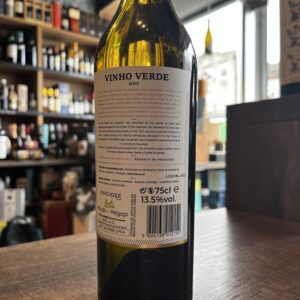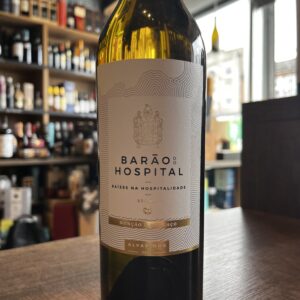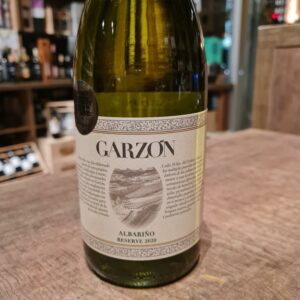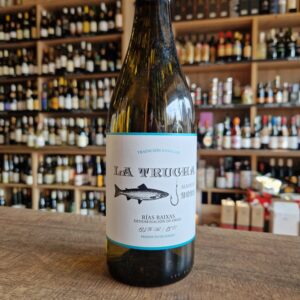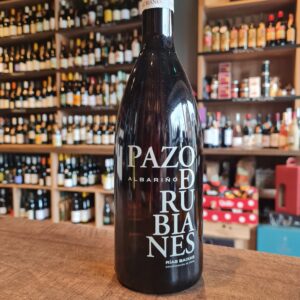Albariño (Alvarinho) is a green-skinned grape variety native to Galicia on the north Atlantic coast of Spain
-
Out of stock
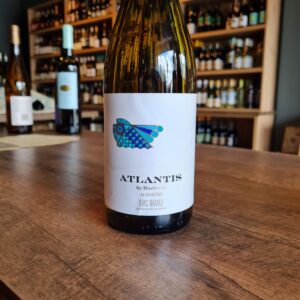
Atlantis Albariño
€19.00Atlantis Albariño is a white wine from the D.O Rías Baixas produced by the winery Maetierra. As it name suggests, this a monovarietal from the grape Albariño. The temperatures in the region are gentle. The abundance of rainfall, is however constant. Atlantis Albariño is located in the vineyards of Condado de Tea, very close to the river Miño. The soils are sandy with a granite base. Atlantis Albariño is a part of the Atlantis series produced by Vintae. The project, managed by the well know oenologist Raúl Acha, produces Atlantic wines from a very small selection of vineyards from different appellations of origins (D.O). Pair it with clams, oysters and shellfish. -
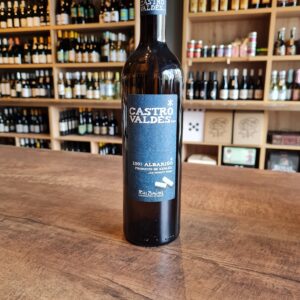
Castro Valdés Albariño
€20.00Springtime weather calls for chilled white wines that are crisp, refreshing and floral. Albariño wines definitely are in that category. Try this Albariño: The Castro Veldes Albariño 2019 is delicious and at a great price. This is your typical Spanish Albariño wine with slight floral characteristics, some lemon flavours, and a beautiful bright taste. It’s a lovely wine for an aperitif and goes well with seafood. The Albariño grape is from the western coast of Spain and makes for a perfect pairing with roast or steamed chicken, seafood, salads and light dishes. Nothing wrong drinking on it's own -
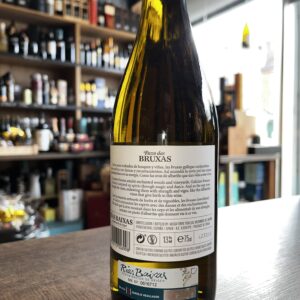
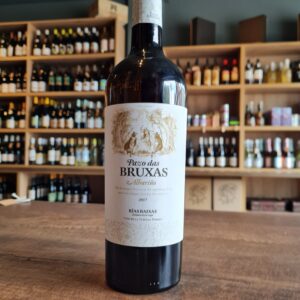
Pazo Das Bruxas Albariño
€19.00Pazo das Bruxas is a wine that pays homages to the folklore and nature of Galicia, a land of immense forests inhabited by mystic and magical beings like the Galician witches who lived in old country houses (pazos) where they would connect with nature through dances and spells to obtain the best fruits from it. Just like the albariño stock that gives life to Pazo das Bruxas. It is made by the local and most representative variety of Rías Baixas region; Albariño. It is an intensely aromatic wine displaying distinctive fruit notes (green apple and lemon peel) with clean undertones of hay. The perfect choice as an aperitif or to pair with raw, cooked or grilled seafood. -
Out of stock
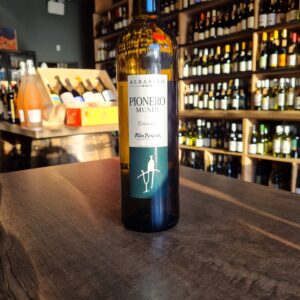
Pioneri Mundi Albariño
€19.00The Region of Rias Baixas is located in Galicia, Spain. All of their coast is surrounded by the Atlantic Ocean giving huge impact on it's climatic characteristics, being very humid and fresh comparing to other parts of Spain. These conditions are perfect for a native grape of this northern area of the Iberian Peninsula(in Portugal is known as Alvarinho, mainly used for Vinho Verde), to thrive and deliver a fantastic wine. The Viña Almirante winery it's one of the most influential Bodegas in the region, whom had the foresight to start producing this grape over 70 years ago in the area of Val do Salnés. It's name(Pionero), comes from this vision ahead of their time producing this energetic and intense wine. With Jose Estevez at its helm, he drove sales up by focusing on the international market. The story of Viña Almirante begins with Jose’s grandfather, who owned a farm in Cuba which was taken by Crasto after the revolution. The grandfather and his son fled to Spain in the 1960s. Jose grew up in Rias Baixas and though working as a labor lawyer, always loved the farm and was a very talented home winemaker for years. So talented that people kept telling him to make it his full-time vocation. In 2002, when a beautiful hillside vineyard, owned by 2 spinster sisters, came up for sale, he found a partner and bought it. This was the realization of his dream, to go back to the land stolen from his family. He said it was a scary moment to dive into this new venture but he felt propelled by his family history, his dream and his love of the land; call it fate. He now owns 35 ha of vines, all on the slopes. Jose is totally hands on, producing about 7500 cases per annum. -
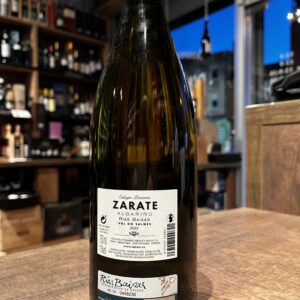
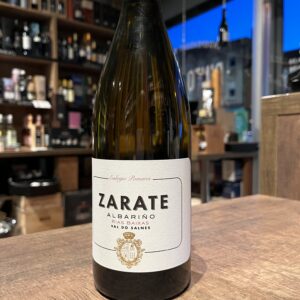
Zárate Albariño
€26.50Bodegas Zarate is located in the Val do Salnes, named after the ‘sal’ (salt) the Romans used to harvest there. This small but brilliantly run cellar was established in 1920 by Ernesto Zarate, who was pivotal in promoting Albariño in the area. Current winemaker Eulogio Pomares (Ernesto's grandson), studied in Bordeaux and Germany investigating parallels between Albariño and Riesling, his knowledge of the Albariño grape is second to none. Since he took over the management of his family vineyards in 2000, he has focused on improving them. He started to work organically, abandoning mineral fertilisers. Instead, he uses shells from the surrounding coastline which provide the calcium and magnesium the vines need and don’t get from the acidic soils. He also uses local seaweed as compost. In the cellar, he is low intervention and his wines are characterised by their Atlantic freshness and age-worthiness. Pair it with pasta, shellfish, veggie dishes, snacks & appetizers, fish


